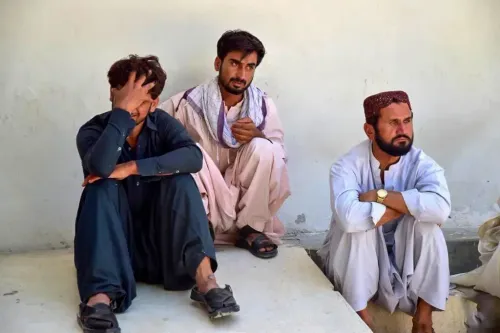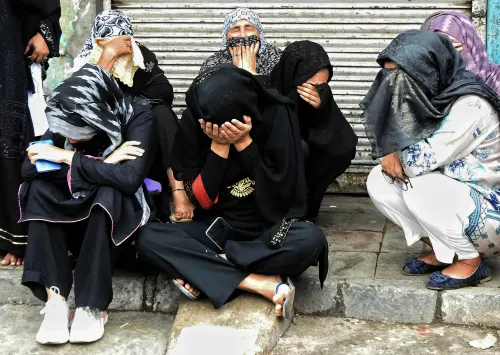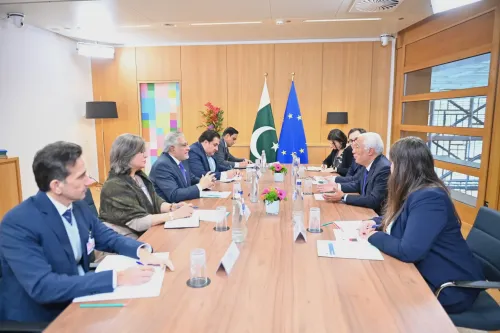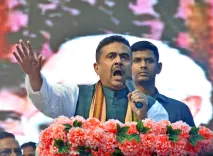Could Pakistan-Sponsored Terror Networks Affect Europe?
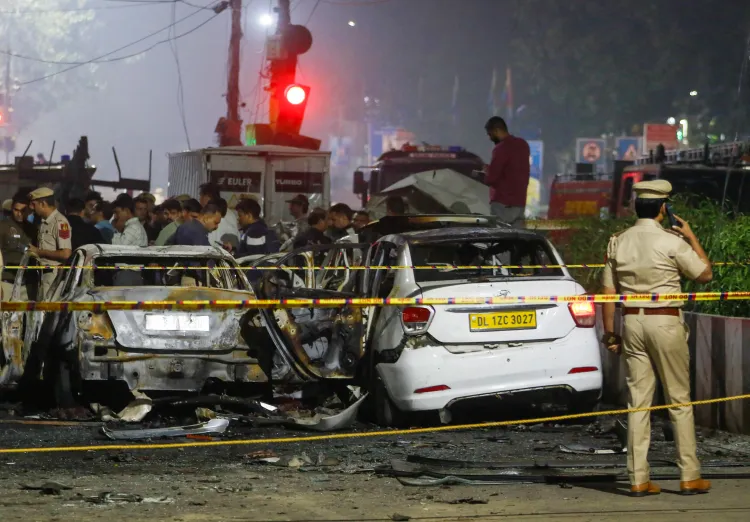
Synopsis
Key Takeaways
- The Red Fort attack underscores the ongoing terrorist threat.
- Complex funding structures complicate tracking.
- Pakistan-based networks pose risks to European security.
- International cooperation is essential in combating terrorism.
- Heightened vigilance is necessary to prevent future attacks.
Dublin, Nov 21 (NationPress) The terrorist incident that transpired near the Red Fort in New Delhi on November 10, resulting in the loss of over 13 lives, highlights the persistent menace presented by global terrorist networks, leaving the world in disbelief and prompting ongoing evaluations by international media regarding its repercussions, according to a report.
The foundational frameworks utilized to plan and carry out assaults against Indian interests are supported by an intricate layered hybrid structure. Terrorist factions like Jaish-e-Mohammed and Lashkar-e-Taiba function through a mix of political figures masquerading as front organizations, intermediary networks within Pakistan—historically bolstered by state-affiliated entities—and smaller cells that engage professionals or students for radicalization and technical assistance. This configuration facilitates both minor operations, such as local attacks and vehicle bombings, as well as coordinated actions with cross-border implications, as highlighted in security analyses and regional assessments,” the report in EU Reporter elaborated.
It further indicated that the financing and resources for these terror networks stem from various sources, including private contributions and sponsorships—often channeled through international charitable or religious organizations—alongside 'front' entities serving as intermediaries and informal money transfer systems like hawala, complicating global tracking efforts.
“Internal reserves and the local commercial or parallel economy within Pakistan are also significant contributors. While nations like Turkey and China have fortified diplomatic, economic, and, in some instances, cultural ties with Pakistan, global evaluations distinguish between direct state funding for terrorism and broader political or economic support. In Europe, there are apprehensions regarding organizations partially associated with Turkish funding networks, while concerning China, credible international sources do not confirm public or direct state funding for groups orchestrating attacks against India. Reports accentuate the critical role of private donations, hawala systems, and front organizations as funding mechanisms and stress the necessity for enhanced international AML/CFT cooperation to stem these financial flows,” the EU Reporter noted.
The ongoing operations of Pakistan-sponsored terrorist networks might adversely affect Europe in multiple ways, such as amplifying migration pressures from individuals seeking refuge, enlarging international terrorist organization networks with possible transfers of expertise, funding, or recruitment to European countries, and disrupting economic and commercial relations by heightening business risks for European firms operating in South Asia.
“The terrorist act near the Red Fort serves as a powerful reminder of the ongoing threat posed by global terrorist networks, which leverage both ideological and financial infrastructures to execute their agendas. Despite the apprehension of culprits and the disruption of considerable network resources, the necessity for constant vigilance, robust law enforcement, and international collaboration remains paramount. The reactions from countries such as the US, Singapore, Israel, Bangladesh, Nepal, and Ireland exemplify that terrorism transcends borders and can only be effectively countered through unified, collective action,” it concluded.

